An anniversary like no other!
As last years New Designers exhibition wrapped up and plans began for the 35th anniversary this summer, no one could have anticipated the challenges that the show organisers and graduate exhibitors were set to face. The seismic shift caused by the global covid-19 pandemic has effected everyone, not least those involved in live public events, and by it’s very nature, New Designers has always been a destination event for visitors to physically discover the work of the next generation of creative talent. But one of the hallmarks of any creative trade is adaptability and the event organisers have responded in true “the show must go on” style, albeit without actually having a physical show.
In fact, instead of inviting graduates from across the UK to hot foot it with all their wares to London’s Business Design Centre for two 1-week long exhibitions, the show organisers have created a series of online digital initiatives, including ND Selects and ND Awards. For an event that usually offers such a positive next-step for the graduates involved, this responsive format still offers a great experience and connectivity to design industry professionals:
“With these virtual initiatives, New Designers hopes to offer graduates alternative opportunities to gain better insights into the design industry and advance in their professional careers in such extraordinary circumstances.”
Given that the graduates would have started their projects up to a year ago, it’s no surprise to find that there is very little, if any, work that tackles issues relating to the pandemic. However, there are some common, and indeed worthy, topics found across the show, notably how design can help to improve sustainability as well as how it can contribute towards mental health and wellbeing.

As increasingly witnessed at numerous design shows over the last couple of years, making informed and considered material choices that are either recyclable or locally sourced has also been a key focus for many students this year. Holly Grounds, a product design graduate from Ravensbourne University has opted to address the issue of plastic waste by designing an edible ramen noodle packet that dissolves in boiling water, eliminating the need for disposable, single-use plastic.
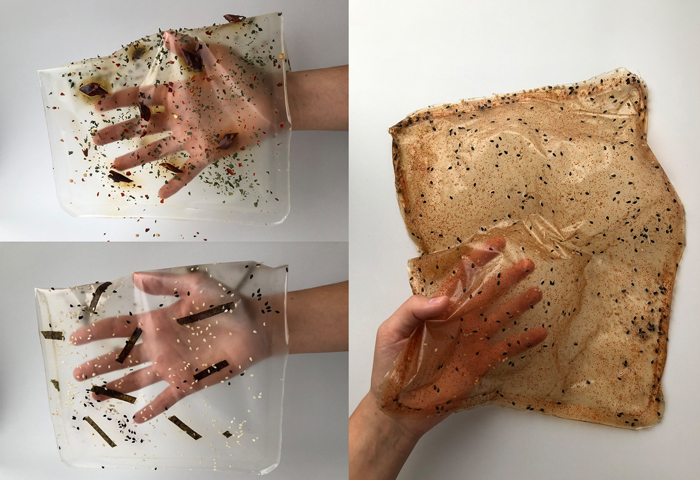
Whilst Marieke Evans from the University of Dundee reconsidered the shared public history of an abandoned Edwardian public bath in Glasgow and conceived plans for larger scale structures including an intercultural community hub called Ashore.
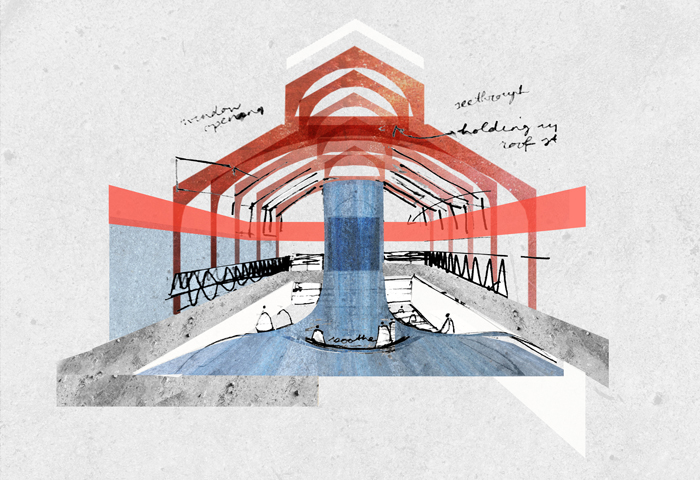
By exploring the building and its association with water she has developed a conceptual space that provides educational workshops, whilst using a narrative of sea crossings to honour and welcome local refugees.
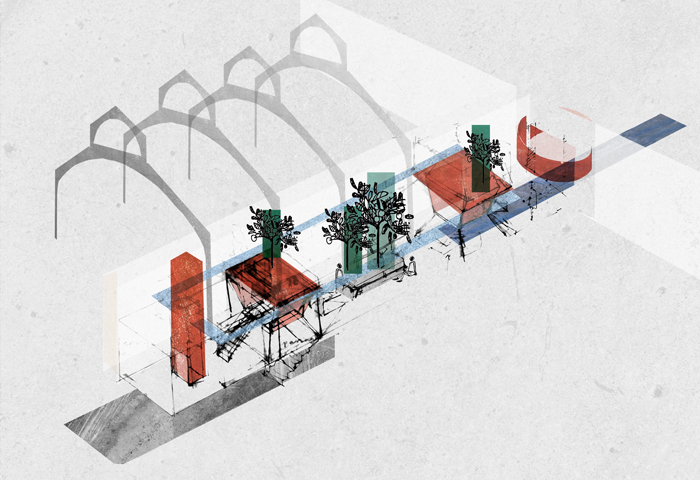
Erin Wardingham from Leeds Arts University has created a stimulating collection of printed textile designs created for the women’s sportswear market, but with the potential for diverse application. Inspiration for Graphic Colour is pulled from the mismatched compositions and distinctive geometric graphics typical of the Memphis Art Movement. Linear qualities balance the obvious colour blocking, providing a platform to exhibit a sense of movement and illusion, influenced by features of Op-Art.
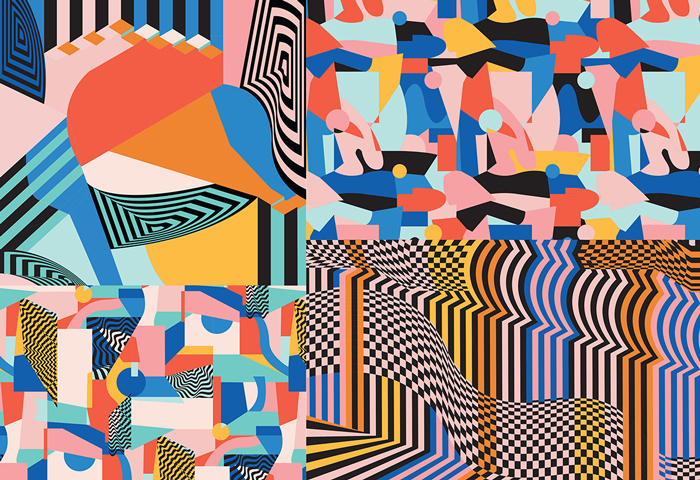
Sissel Gram Warringa of Kingston University focuses on the appreciation of the small things in day-to-day life with Geo cutlery. The cutlery is an exploration of how geometry can become ergonomic, using primary shapes – circle, square, and triangle – to create a set of cutlery for daily use.
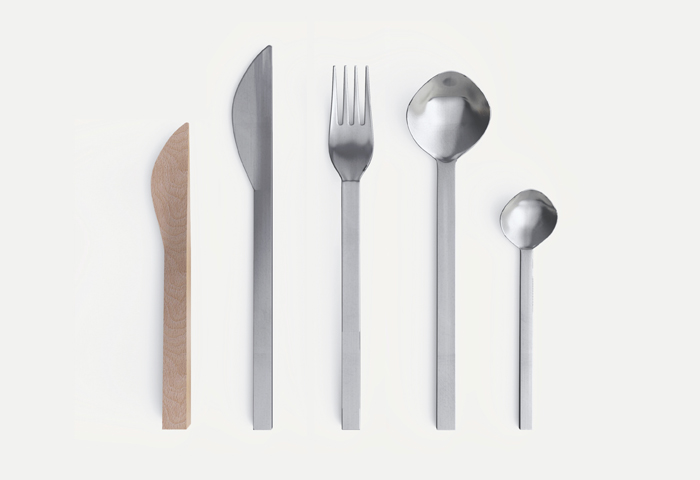
As Warringa explains, the personal connection to the tools we use for eating can have a subtle but profound effect upon us because we all tend to have “a favourite fork because it twirls the spaghetti in just the right way or using the right spoon for scraping that last bits off your plate.” The 5-piece set consists of a wooden butter knife, a knife, fork, tablespoon, and teaspoon.
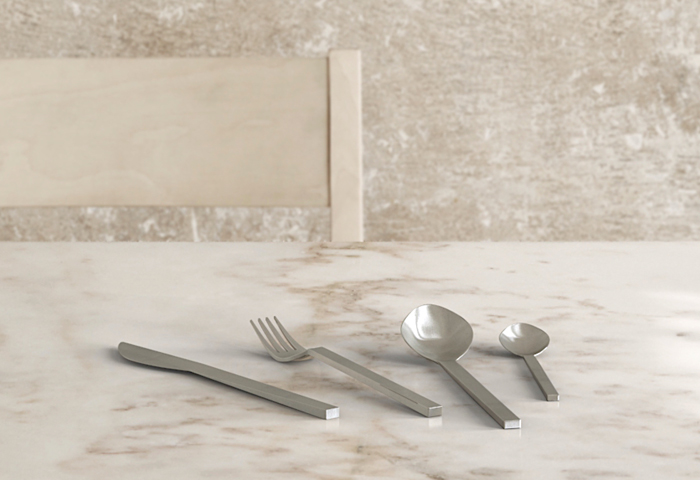
The ND Awards has always played a key role in the event and celebrates design in all disciplines, from fashion and textiles, jewellery and precious metalwork, glass and ceramics, contemporary design crafts to furniture design, product and industrial design, spatial design, and digital design. Given the circumstances, the event organisers have decided to mix thing up a little this year, and as the digital initiatives will be running into September, they’ve set a series of design briefs for graduates to respond to with fresh work. There are a number of discipline-specific awards that neatly align with the award sponsors practice such as The Screening Prize by Aardman Academy as well as two awards that will be challenge graduates to utilise their professional skillset to provide a solution to some of the most pressing global issues of our time; the Creative Conscience Environmental Design Award and the Social Impact Design Award. The winners of these awards will have the opportunity to work closely with Creative Conscience and its network on personal career development steps and also explore opportunities to develop the winning concepts into a reality.
Whilst the show organisers hope to welcome graduates and visitors back to the show in 2021, their online response to this year’s event can be admired and enjoyed whilst serving as a welcome reminder of the resilience found in creativity.




